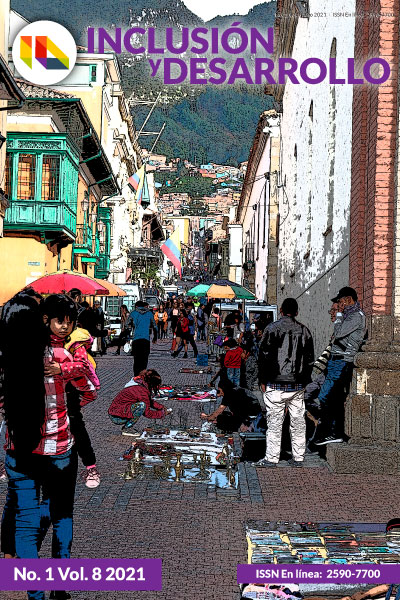El desarrollo de las competencias lectoras en el ámbito virtual
Barra lateral del artículo
Cómo citar
Impacto del Articulo
Detalles del artículo

Esta obra está bajo una licencia internacional Creative Commons Atribución 4.0.
Contenido principal del artículo
Resumen
Este artículo presenta los hallazgos del proyecto competencias lectoras interdisciplinarias en lengua materna UNIMINUTO realizado en año 2017, 2018 y 2019 por docentes pertenecientes a la coordinación de CEPLEC-Inglés (Comunicación Escrita y Procesos Lectores) de la Corporación Universitaria Minuto de Dios Vicerrectoría Regional Bogotá Sur quienes acompañan los procesos de lectura y escritura de los estudiantes de los programas tecnológicos y profesionales a nivel presencial y virtual, con el objetivo de socializar una estrategia que busca mejorar la comprensión lectora en los estudiantes de pregrado en su proceso de formación, bajo el referente teórico de la competencia comunicativa de lectura crítica, mediante la cual se establece una relación directa entre el análisis y la comprensión de los diversos textos con que las personas se rodean a diario. El proyecto se desarrolla a través de la implementación de una serie de preguntas usadas en la prueba estatal, SABER PRO1 , aplicada a los estudiantes de Colombia, al culminar sus estudios secundarios y de pregrado, la cual busca identificar el nivel de comprensión de lectura de los estudiantes; es por ello, que este proyecto aplica pruebas tipo SABER PRO, permitiendo que los estudiantes se familiaricen con los distintos tipos de texto: argumentativo, informativo, narrativo, gráficas y caricatura, dos, identificar los niveles de comprensión lectora y, a partir de ese diagnóstico, proponer estrategias para mejorar la formación profesional. En el presente documento se describe la metodología trabajada en los años de investigación, así como los instrumentos y hallazgos obtenidos a través de este proceso investigativo. Palabras clave: concentración, niveles de comprensión, interpretación, indagación, lectura crítica.
Referencias
Aguirre, R. (2008, Enero – Diciembre). Fomentar la lectura y la escritura en estudiantes de formación docente. Acción Pedagógica. https://issuu.com/indtec/docs/revista_scientific_-_vol_2_-_n_4_-_
Bolívar, A. (2011). Las competencias para la vida más transversales. Buenas prácticas para su tratamiento en el centro educativo y en el aula. Guatemala: USAID. Recuperado de: Bou,
J. F. (2013). Coaching educativo. Bogotá: Ediciones de la U. Bou, J. F. (2009). Coaching para docentes: el desarrollo de habilidades en el aula. Alicante: Editorial Club Universitario. 346 347
ICFES (2017). Módulo de lectura crítica. https://www.cecar.edu.co/documentos/saber-pro/lectura-critica-saber-pro-2015-2.pdf.
Monje,C (2011). Metodología de la investigación cuantitativa y cualitativa, guía didáctica. https://www.uv.mx/rmipe/files/2017/02/Guia-didactica-metodologia-de-la-investigacion.pdf
Murillo Sinisterra, M., & Reyes Galindo, R. (2018). El riesgo de la lectura literaria en el aula: abrirse a los mundos que los jóvenes sueñan. Inclusión Y Desarrollo, 6(1), 159-170. https://
doi.org/10.26620/uniminuto.inclusion.6.1.2019.159-170
Pérez, M. & Rodríguez, A (2013). ¿Para qué se lee y se escribe en la universidad colombiana? Caracterización de prácticas de lectura y escritura en 17 universidades. Revista de
Docencia Universitaria, 11 (1), p.p. 137-160. doi: https://doi.org/10.4995/redu.2013.5595.
Piaget, J. (1981). Psicología y Epistemología. Ed. Ariel, Barcelona, Caracas, México, p. 15.
Reyzábal, M. V. (2016). Las Competencias Comunicativas y Lingüísticas, Clave para la Calidad Educativa. REICE. Revista Iberoamericana Sobre Calidad, Eficacia Y Cambio En Educación, 10(4). https://revistas.uam.es/reice/article/view/2988.
Rivera, H. (2008). Una alternativa para el subsistema de educación secundaria bolivariana. La interdisciplinariedad. http://www.aporrea.org/educacion/a51692.html.





